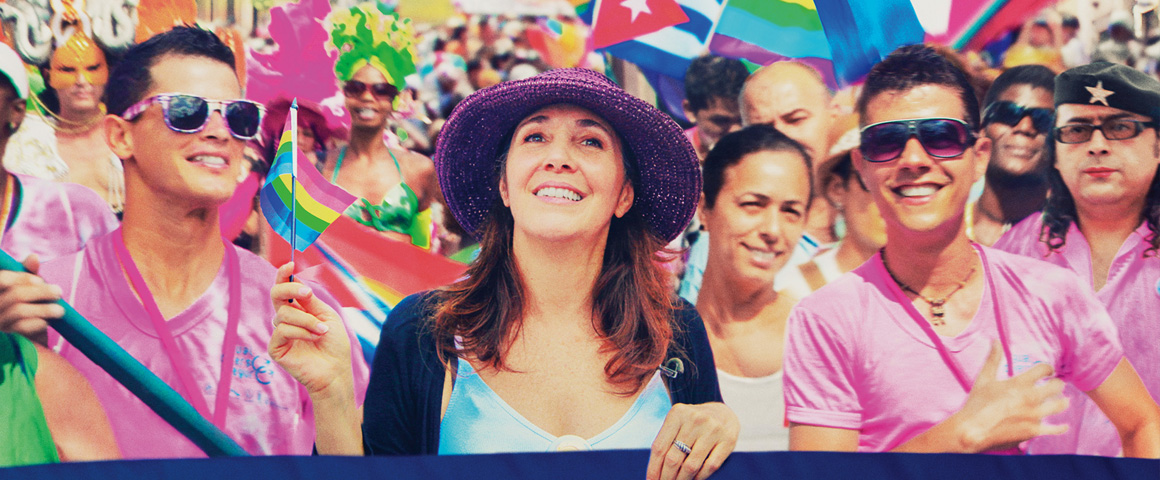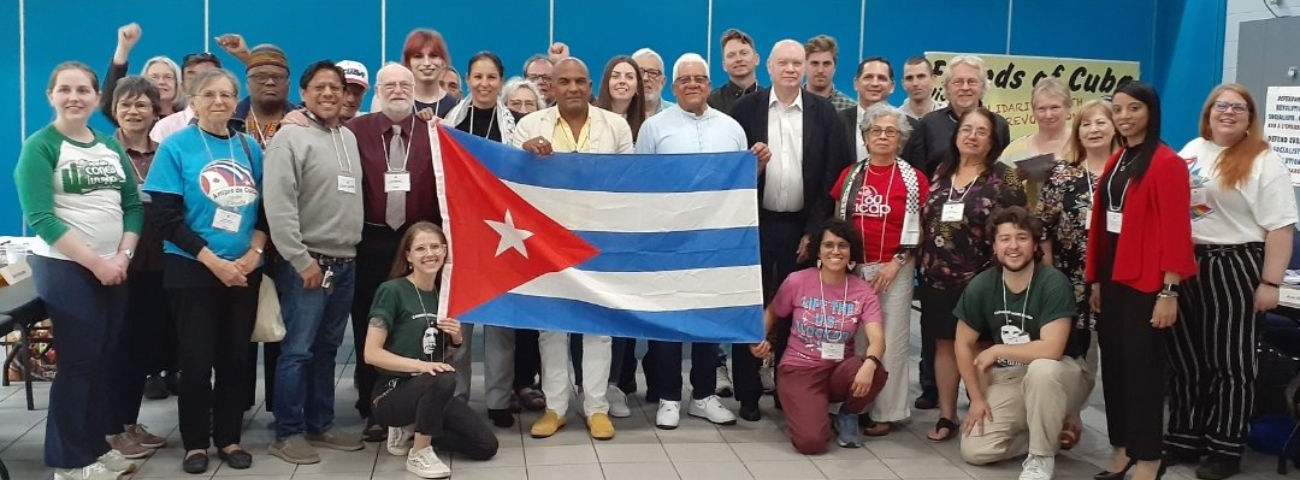By Helen Kennedy
In January, a labour delegation from Canada met with two Cuban lawyers in Holguin, to discuss the implementation of their country’s new Family Code. Maité Rodriguez Tamayo and Liliana Arévalo Domínguez provided details of the revolutionary nature of the new law, which was adopted by referendum on September 27, 2022.
When Cuba’s new constitution was adopted in 2019, it came with a promise to update the Family Code to reflect the modern situation of family structures and obligations. At that time, there was organized opposition to the proposal of including same-sex marriage rights in the constitution, and the proposal was withdrawn. Understanding that the opposition would likely remain, the National Assembly, Communist Party, Federation of Cuban Women (FMC), Workers’ Central Union (CTC) and Committees in Defense of the Revolution (CDR) developed an extensive process to reach out to as many Cubans as possible to encourage the widest possible support for the new Code.
Establishing love, affection, solidarity and responsibility as among the highest of family values, the new law is referred to as the Code of the Affections. Lawmakers studied the experience of other countries, consulted with UN officials and incorporated three important UN conventions: the Convention on the Rights of the Child, the Convention on the Rights of Persons with Disabilities and the Convention on Violence and Harassment. Going far beyond simply recognizing same-sex marriage, the new Family Code ensures equality and provides protection for every family member.
Property rights within the family were also made equal. Previously, spouses retained all property acquired before the marriage and any gifts or inheritances received during the marriage. In the new Code, a couple – either prior to or after marriage – can decide on how they will split any assets in the case of separation or divorce. In the case of no agreement being made, the default position is equal sharing.
The Code introduced new rights in relationship to families. It gives every Cuban the right to have a family free from violence. New measures are outlined that will allow for penalties for domestic violence and promotes comprehensive policies to address gender-based violence. The new Code legalizes equal marriage and equal adoption rights regardless of sexual orientation, recognizes the rights of surrogate mothers and legalizes the process of surrogacy, referred to as ‘solidarity gestation.’ It promotes equal distribution of domestic responsibilities amongst men and women and extends labor rights to those who care full-time for children, elderly people or people with disabilities. Rights of grandparents, aunts, uncles and other members of the family are guaranteed.
The Code’s adherence to the UN Convention on the Rights of the Child expands Cuban children’s rights. They now have the right to be involved in decisions that affect them in their home and they have the right to a childhood free of violence, negligence, abuse and discrimination. While the old Code described ‘parental authority’ in relation to one’s children, the new one describes that relationship as ‘parental responsibility.’
In terms of transgender rights, the new Code clearly states that children have the right to their gender identity. New information on the Family Code will be introduced in fifth-grade civics classes and student associations have the responsibility of incorporating it into their political and civic education. As knowledge and support for trans rights grows across the country, the community will already have the legal framework to support their rights within the family.
Over four years, the draft Code was taken to every electoral district in the country. Every Cuban, not just leaders or delegates to the National Assembly, had an opportunity to read it, attend a meeting and contribute revisions. Legal advisors were in attendance at every meeting to help explain the legal intricacies of the Code.
The main detractors were religious groups who waged a large, coordinated campaign in communities and on social media. The opposition was based on the Code’s recognition of same sex marriage and new parental responsibility laws which they believed took away their rights as parents. In Baracoa, for example, some people put stickers on their doors that read ‘marriage as god created.’
Despite the organized opposition, the comprehensive and democratic process was successful. All in all, there were twenty-five drafts of the Code, with the final one submitted to the National Assembly. The September 2022 referendum resulted in 67 percent voting yes and 33 percent voting against. While voting in Cuba is voluntary, whether for elections or referendums, more than 74 percent of Cubans voted.
The truly democratic and thorough consultation process resulted in a truly revolutionary Family Code. Cuba, once again, stands as a beacon of hope for the rest of the world still fighting for equality rights.
Get People’s Voice delivered to your door or inbox!
If you found this article useful, please consider subscribing to People’s Voice.
We are 100% reader-supported, with no corporate or government funding.




